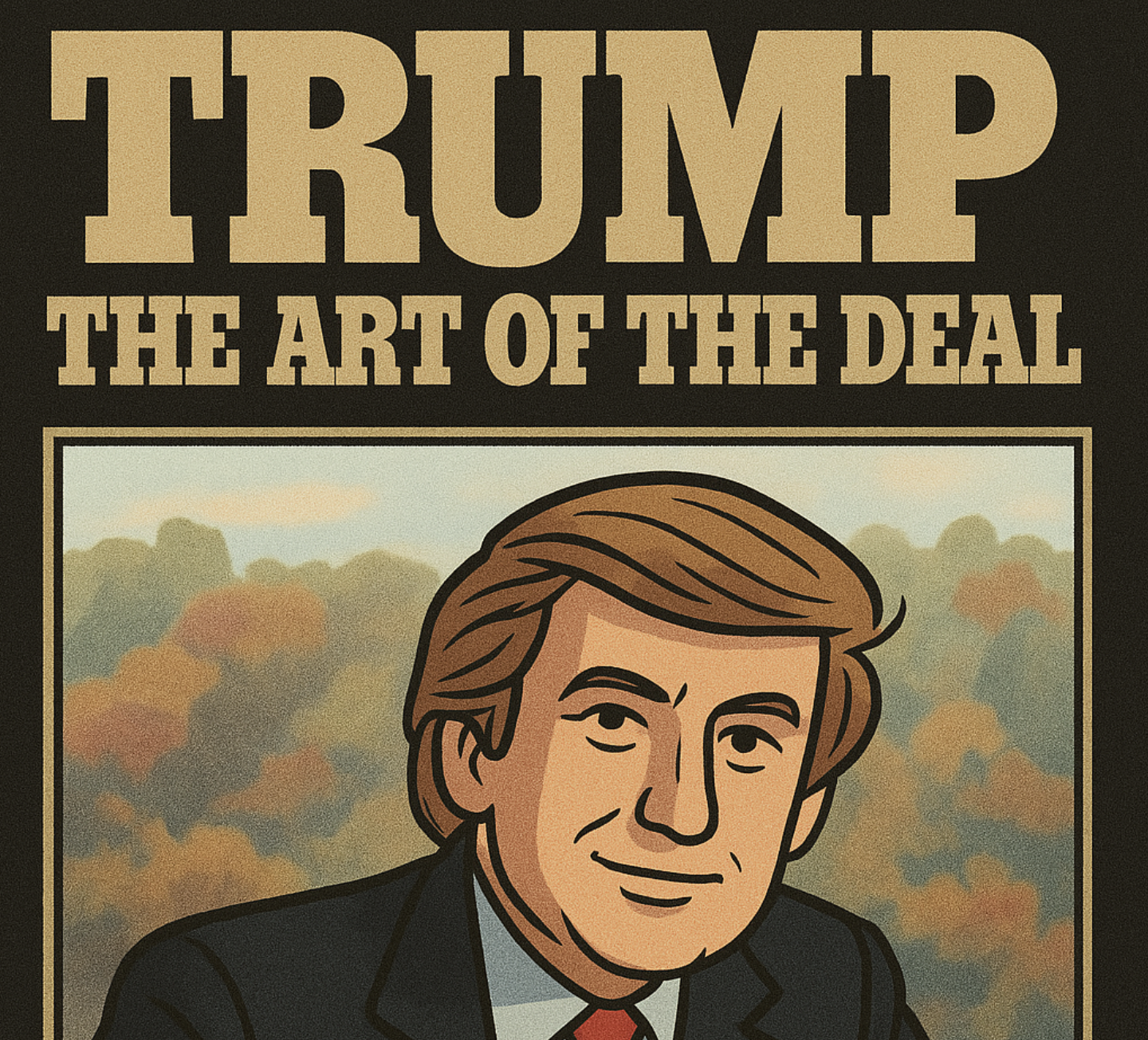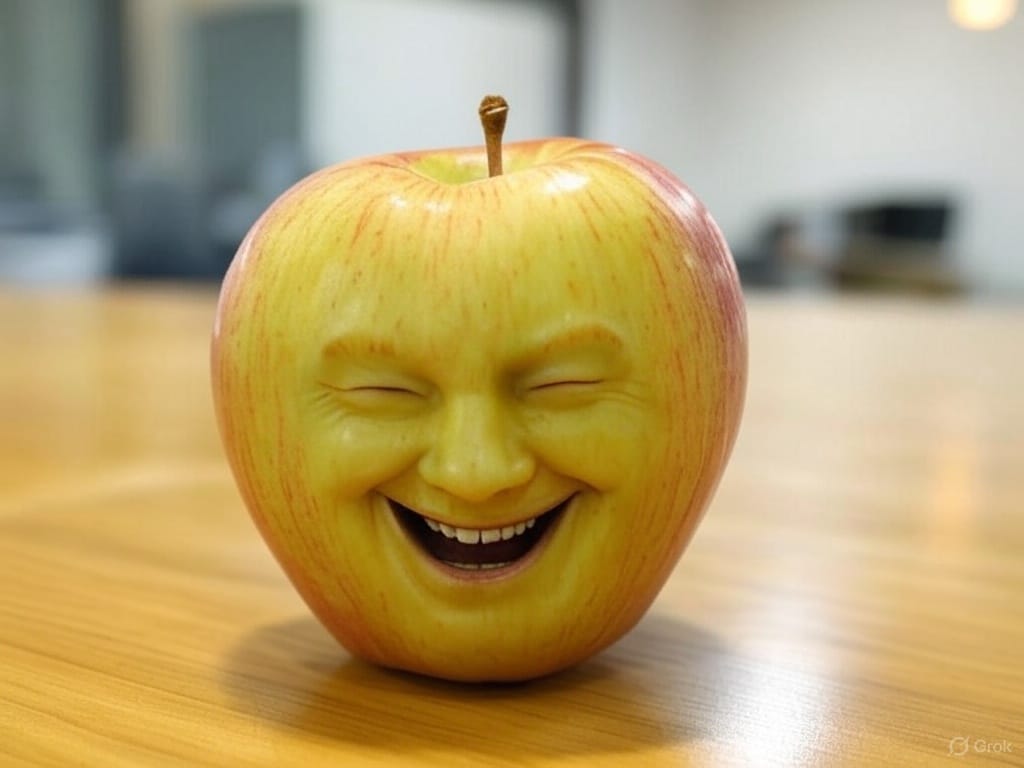Terror Riffs

First, a couple important caveats. My expertise doesn't reside in either economics or politics. And I'm certainly not an expert on the Trump administration – though I'm not sure anyone is.1 But I do consider myself to be pretty well versed in the general theory of Occam's razor – i.e. believing that the simplest explanation for something is the most likely. And I do think I'm decent at reading a room – even if that room happens to be the internet. A vibes guy, as it were.
So that's the lens I take to this tariff situation. And at this point, I think it's fair to call it a fiasco, considering that the US stock market last week suffered its worse losses in a few day span since 1987 – aka "Black Monday". And to hear some tell it, this could be just the beginning of the carnage – "recession" is being thrown around a lot right now. And in some cases, 1929 is even being invoked. Ahead of the next wave of tariffs set to go into effect tomorrow, it's pretty clear that even the largest companies in the world are absolutely terrified for how this plays out.
I mean, Apple is loading up airplanes to get iPhones out of Asia like they're evacuating diplomats from a war zone in the middle of the night.2
In trying to game this all out, I'm quite a bit more optimistic. Yes, even now. And yes, perhaps – perhaps even probably – naively, I admit. It's less about the administration, which has completely bungled the optics of this situation, if nothing else. But more so in simply how I believe this will all likely play out in realistic terms.
The "Art" of the Deal
First and foremost, as everyone is well aware, Donald Trump is a deals guy. More so than anything, it's what he lives for and he believes he thrives in such negotiations. So he has set a stage – the literal world stage – for a series of negotiations. Obviously, he cares about the stock market collapse, but only insofar as it impacts his image as a "winner". But that second rule of Trump can't override the first rule here. If he were to pull back on the threat of these tariffs, it would obviously send the stock market soaring – we saw this yesterday when a seemingly random remark by someone in the administration was taken out of context and created trillions of dollars of value out of what was ultimately thin (and hot) air. Trump could do this at any moment and take the "win". But if he were to do that, it would completely undercut his negotiating leverage here.
And so while everyone is busy debating the rationale for these tariffs and specifically, the reciprocal numbers, which may or may not have been pulled out of ChatGPT, I believe that sort of misses the point. The point is less about the numbers themselves and more the shock value they bring, creating a fertile ground for deal negotiations for Trump. But again, the key to this is that they must have teeth. That's again why I don't believe we've seen a backtrack yet. And why he may even allow some – or even most – of them to go into effect for a least a little while.
But I also believe the intent is actually not to have these tariffs in place forever, or even for long. I mean, they're insane. They seemingly would send the US into a second Great Depression. Or worse, it could send the world into one. It would be like a second COVID collapse, with economies around the world grinding to a halt. But this time it would be completely self-inflicted.3
Yes, that seems to be happening right now. But again, I choose to believe that's not the real intent here. It's a symptom of the root cause which is gaining leverage.
Making Made In America Again?
I mean, on some level, this is all obvious. But again, you see and hear a lot of words being spilled about how the intent is to eliminate deficits. Or to bring back manufacturing to the US. Or, ideally, both. To Make America Great Again™, as it were. And sure, Team Trump would take those outcomes. But the reality here is that those are simply not realistic outcomes anytime soon. And certainly not in the lifespan of Trump's second administration.4 And probably not even in the span of a would-be JD Vance administration if he were to succeed Trump and keep such theoretical policies in place through two (very theoretical) terms of his own.
We'll leave aside the point that if Trump were to fully go through with these tariffs, the likely impact to the economy – certainly in the short term – would all but ensure that Trump or any Trump affiliate would not have a chance to see any of these changes through as they would be voted out of office at the first opportunity. So you'll forgive me if I take all of the sabre-rattling with a giant grain of salt. Peter Navarro may or may not be a true believer in these policies, but it doesn't matter if they don't have enough time to actually have the impact they desire.
Most of the political wins in tangential topics that Trump is taking credit for – announcements and groundbreakings – were already put in place before his time. He doesn't just snap his fingers and things get done. Such things take time. And moving all or even just a big percentage of the manufacturing that the US relies on to American soil would probably take decades, if it were possible at all. And it's not really possible because of the economic realities of our world today. If you think the iPhone is going to get too expensive with tariffs, wait until you see what it costs when it's completely manufactured in the US, built by American workers earning American wages.
As much as I enjoy the Secretary of Commerce of the United States saying not just out loud, but on national television, that he believes there is an "army of millions and millions of human beings screwing in little screws to make iPhones" in China, as if the operations weren't significantly more sophisticated than that at this point, and even better, that this "kind of thing is going to come to America", that's just not going to happen. Apple would probably sooner go out of business before that happened. And in fact, if that were forced to happen, Apple may go out of business.
The actual reality of how this could play out is perhaps that if the iPhone ever gets manufactured in America its through a fully automated process using machines and AI – i.e. little or no human labor. At some point, at scale, the savings may be in shipping costs which brings the iPhone "home". So perhaps that's where America should be pouring resources and time. But it's also not a winning talking point to much of anyone at the moment, and certainly not to Trump's base.
And so they're talking about non-serious things. Policies that sound great on paper – though perhaps not so great on television! – but there's just no way the realities of our current age swallows such a change. We want our cheap iPhones – and they're not even cheap! We want our cheap stuff. And that stuff largely exists because it's one big arbitrage play. There are places in the world where it's cheaper to live and thus, wages are less.5 If we move all of that work to America, prices are going way higher and guess what? If we try to raise wages to make up the difference, the prices will go higher still! Funny that.
This is all Econ 101, and perhaps Howard Lutnick aside, even the Trump administration knows all of this. To restate it clearly: using these tariffs to rewrite the world order when it comes to manufacturing makes no sense because it would take decades to make happen and it would make basically everything far more expensive. That may or may not make America great, but certainly not in the "again" way that Trump supporters imagine.
And to beat the dead horse: not any time soon.
The 'Trump Turbulence'
And you will not be able to convince me that Trump is doing all of this for the greater good, for generations years from now. Perhaps some of his most idealistic advisors believe this, but Trump is Trump. I do believe there's truth to his hatred of trade deficits – he's been railing on this for decades – but that's also better as a political talking point versus an economic reality. I think some of those advisors are yes, leveraging this long-held belief of his in an attempt to carry out agendas.
But ultimately, Trump will set the agenda.
Is having a trade surplus better or worse than having a stock market collapse? You can't have both here, sadly. And if you believe the old Benjamin Graham adage that the stock market is a voting machine in the short term, well...
So I bet this ends up being less a "Nixon shock" and more a "Trump turbulence". That it's less completely blowing up the global trade system – something else that would take years and years to play out – and more about re-wiring it with better deals, which Trump would love nothing more than to take credit for, in the short term. And I'm sure his team believes that if they can start to lock in some of these deals that they, in turn, will bring back a booming stock market. Because it will restore some level of stability and remove some level of uncertainty, if nothing else. But he needs to get those better deals locked up first and again, he cannot do that without leverage.
And he cannot gain that leverage without putting the stock market into cardiac arrest. Because the market needs to believe he's crazy enough to go through with this plan to destroy the US (and world) economy.
If there's one thing I'll give his administration credit for if my above theory is at all correct, it's that they're staying on-point, message-wise in suggesting that these tariffs – again, I'm mainly talking about the reciprocal tariffs here – are the real deal. And again, they may even put them in place if they can't get the deals they want locked in ahead of time. It might even be helpful to say, have one or two deals squared away for others to see and let their tariffs lock in, thus amping up the leverage. And if this all leads to the Fed cutting rates again, it can buy a bit more time for all of this to play out.
The China Syndrome
The wild card here is clearly China. Right now, that country, which obviously matters the most in all of this plan, is calling such a bluff. If they keep calling it, and won't deal on Trump's terms, that's going to be a major problem, to say the least. Perhaps Trump still gets smaller wins in other deals with other countries, but that only happens if the China tariffs remain in place. Leverage.
And that's risky and tricky because companies like the aforementioned Apple are so dependent on that specific supply chain. Tim Cook's crown jewel has become an albatross around his neck. And so he'll need to hope that he can get an exemption carved out just as happened the last go-around. Was the $1M fealty payment show of support enough? [Update below: exemption secured.]
A tangential element to all of this is the very real need for American companies to diversify away from the complete reliance on the Chinese supply chain, but that has already been happening – even with Apple – slowly but surely. It's a delicate dance for companies like Apple to do while still being so utterly dependent on China, but they're dancing (and it's undoubtedly why Cook and other Apple executives are over in China so often these days – kissing the other ring). This new economic instability, if nothing else, should hasten the moves for these companies to diversify those supply chains. Not all back to America, because again, that makes no sense (until it's fully automated per above). But elsewhere. India, Vietnam, Brazil, etc.
And the tangential element to the China dependence is, of course, the Taiwan situation with chips in particular. Ben Thompson, who happens to live in Taiwan, and others have this covered well. If you want to talk about leverage, you have to talk about the way China looms over that situation...
Hard to see how TikTok negates that. Though Trump is trying!
Shaking the Snow Globe
Anyway, that's my optimistic take about what I think is going on by simply trying to read the room and using common sense thinking. There's certainly an argument to be made that you shouldn't use common sense thinking with this administration, but I think the fact that no other administration would dare do any of what Trump has already done already speaks to how wild this all is. But that doesn't mean the intent is to blow up the world, but rather to shake the snow globe, causing enough chaos to produce a fertile ground for leverage. People willing to do crazy things often get what they want because most people aren't willing to do crazy things.
That's the ultimate art of Trump's deal, I suspect.
Update: Well, this situation just got potentially more worrisome for Apple...

Update April 10, 2025: And now that we have a pause in the reciprocal tariffs, there are seemingly some details as to why...

Update April 12, 2025: And now Apple (and others) get their relief too, in the form of tariff exemptions on smartphones (and other electronics):

1 Maybe Dr. Ian Malcolm? Or maybe The Joker?
2 Meanwhile, people are hitting up Apple Stores to load up on iPhones like they're survival packs during a disaster. Which, in a way, they are, I guess!
3 We won't dive into the lab leak theories here, but I'm certainly a believer that the fact that a novel coronavirus originated within spitting distance of a lab that specializes in studying novel coronaviruses is... well, that whole situation certainly feels self-inflicted too. Some people may not consider this to be an Occam's razor situation, but I certainly do!
4 Yes, yes, we can joke/not joke here about Trump's desired third term, but if nothing else, I take some comfort in the fact that it seems like a stretch to get Congress to change the Constitution for someone who would be 82 years old when running for such a term. Again, perhaps naive, but there are a lot of variables there, none of which are particularly favorable for Trump.
5 Not to mention the more nefarious reasons why wages may be less in other places...



